Home Remedies For Constipation: 13 Effective Natural Cures
Maintain regular bowel movements with natural and easy-to-follow cures and treatments.
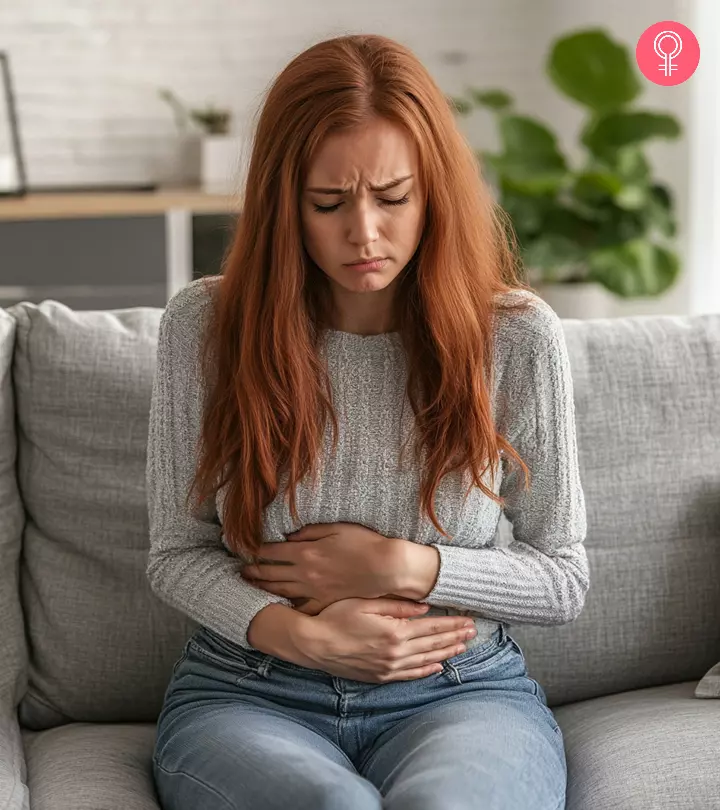
Image: Midjourney/ StyleCraze Design Team
All home remedies for constipation focus on one thing: to get the bowels moving smoothly and painlessly. Constipation can be an uncomfortable condition, not only physically but also mentally. Difficulty passing stools can result in a lot of pain and strain. It is a common problem that affects people of all ages. Being aware of its potential causes and treatments can aid in finding relief right away. We discuss safe and efficient home cures in this article, along with advice on how to keep it from happening again. Continue reading for all of that and more!
In This Article
What Is Constipation?
Constipation is when your bowel becomes difficult to pass, and the normal interval between passing stools increases noticeably.
Infrequent bowel movements are characterized by less than three bowels per week. Diagnosis of this gastrointestinal problemi An issue affecting the gastrointestinal tract - mouth, throat, food pipe, stomach, small and large intestines, rectum, or anus. involves a physical exam and certain tests such as blood test and colonoscopyi An exam used to diagnose changes in the large intestine and rectum by inserting a long, flexible tube through the anus. (1).
A study conducted on 4,702 American adults suffering from chronic constipation revealed that
37.6% discussed their symptoms with a clinician. Of all these participants, 93.5% of them were taking over-the-counter medications, 1.3% were taking prescription medications only, and 5.2% were taking both of these medications to manage their constipation.
 Did You Know?
Did You Know?There are different types of constipation. Learn more about them in the next section.
Key Takeaways
- Constipation makes it difficult to pass stool at regular intervals, so simple remedies like drinking plenty of water may help in making the stool soft and easy to pass.
- Increasing fiber consumption by including whole grains, fruits, and vegetables in the diet may help regulate bowel movements.
- Drinking herbal teas, prune juice, and warm water with Triphala powder are some of the oldest and most effective natural remedies to manage constipation.
- Avoiding processed food low in fiber and exercising regularly may help with regular bowel movements.
Types of Constipation
Constipation is mainly categorized into two types (2):
- Primary Constipation
This is further classified into three types: normal transit, slow transit, and pelvic floor dysfunction. Individuals experiencing normal transit constipation feel constipated but have a normal stool consistency. Those with slow transit constipation do not experience normal bowel movements and the stool takes longer to pass. Pelvic floor dysfunction occurs due to weak or damaged muscles around the bladder and may result in painful bowel movements.
- Secondary Constipation
It occurs due to underlying health issues such as hypothyroidism and diabetes or as a side effect of medications like antidepressants.
Constipation may vary in severity, and its treatment depends on its underlying cause. Check out the next section for some home remedies to help relieve mild constipation.
Home Remedies For Constipation
Medicines and treatments can have side effects on the body. It is best to follow natural remedies to cure and prevent constipation. If you have gastric disorders or irritable bowel syndrome, you should be careful and disciplined. Listen to your body and try to find out if you have constipation symptoms. Incorporating foods that make you poop into your diet can be particularly effective. It’s best to keep your digestion on track to avoid constipation. Apart from that, here are some simple home remedies that will help you learn how to fix constipation fast.
Treat Constipation Easily With These Remedies
1. Prune Juice
2. Magnesium
3. Enema
4. Fiber
5. Castor Oil
6. Lactulose
7. Herbal Teas
8. Olive Oil
9. Coconut Oil
10. Baking Soda
11. Triphala
12. Vitamins
13. Wheat Bran
1. Prune Juice
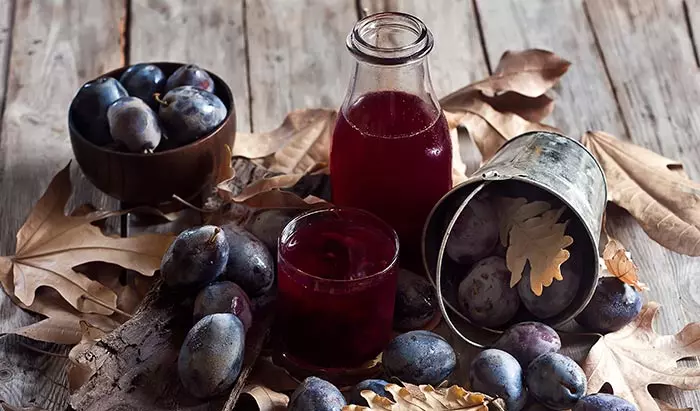
You Will Need
2 glasses of prune juice
What You Have To Do
- Drink one glass in the morning and one at night.
- You can also eat a couple of prunes instead of drinking the juice.
When You Need To Do This
Doing this for a day will give immediate constipation relief at home.
How This Works
Prunes are rich in fiber that makes the stool bulky and easy to pass. They also contain dihydroxyphenyl isatin that accelerates colon functioning (3). Important vitamins and minerals are also present, and it also has antioxidant properties (4). Many people drink prune juice for constipation, as it offers relief.
Caution
Make sure to let the first glass of juice pass through your digestive system before the other one. One in the morning and one at night works well. If enough gap is not given, excessive prune juice in the system can cause diarrhea.
2. Magnesium
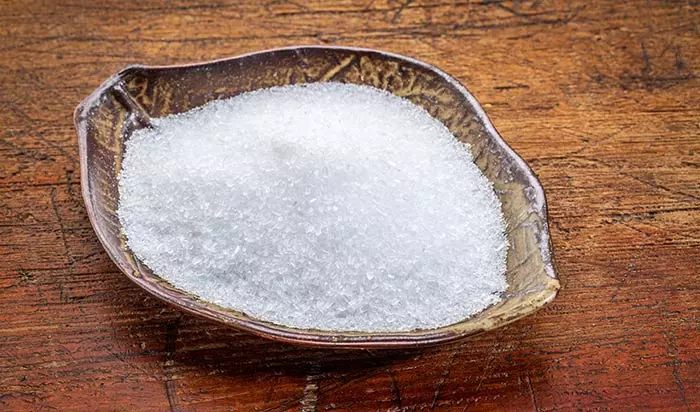
You Will Need
- 240 ml magnesium citrate liquid or 2 tablespoons milk of magnesia
- Water or juice
What You Have To Do
- Mix the magnesium citrate in a glass of water or juice, and drink it. You will get relief from constipation within a few hours.
- If you cannot find magnesium citrate, you can also use milk of magnesia to treat constipation. Mix two tablespoons with a glass of water, and drink it before going to bed.
When You Need To Do This
Drinking magnesium citrate once should help relieve constipation stool. For the milk of magnesia remedy, drink it before bedtime for a few days.
How This Works
Magnesium citrate and milk of magnesia have the same mechanism for relieving constipation. While passing through your digestive system, these compounds pull water into the intestines. The excess water softens the dried out stool, and also creates pressure, resulting in muscle contractions pushing the fecal matter out (5), (6). Milk of magnesia has been proven to be safe for use in children (7).
Caution
Magnesium compounds can cause dehydration. Make sure you drink plenty of water after you consume it. Also, diarrhea is seen in some individuals. If you have a sensitive digestive system, please consult your doctor before using this home remedy.
3. Enema
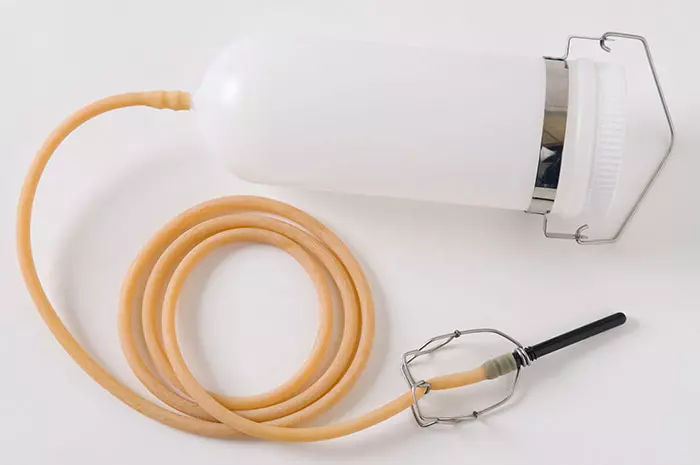
You Will Need
- 1/3rd cup lemon juice
- 1 tablespoon salt
- 1 liter warm water
- Fountain syringe
- Enema apparatus (enema bag, enema tube, clamp)
What You Have To Do
- Mix the lemon juice and salt in the water. Fill the syringe with this water and gently insert into the rectum to relax it.
- The enema bag with the remaining solution should be 20 inches higher than the rectum. Slowly, open the clamp and fill the tube with the solution, and remove the air in it.
- Lie down sideways facing your left side, and slowly insert the nozzle into the rectum (or anus).
- Release the clamp so that the enema solution flows into the colon. Continue this till most or the entire solution has flowed in.
- Hold the solution in for eight to 10 minutes. Immediately visit the toilet as you will experience a pressing urge to excrete your stool.
When You Need To Do This
A one-time enema administration works well to treat constipation.
How This Works
Administering enema softens the stool and builds pressure inside the intestine, thus helping you excrete easily. The lemon juice and salt help cleanse the colon of excess feces and balance the pH (8), (9).
Caution
Medical assistance is suggested in cases where the process seems difficult for self-administration.
4. Fiber
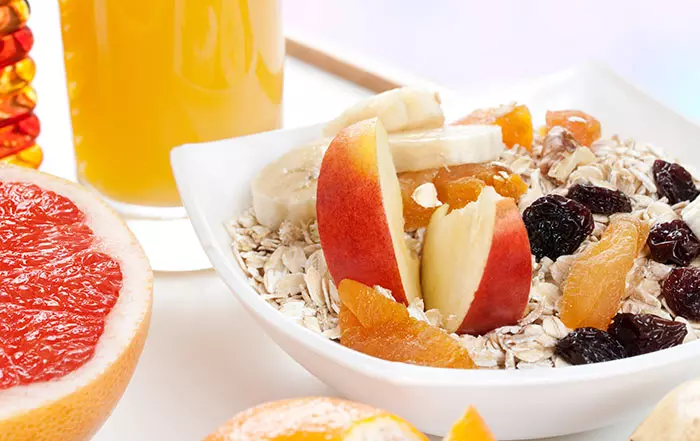
You Will Need
2 cups of fiber-rich foods
What You Have To Do
Eat at least two cups of foods rich in fiber in a day. A few examples of such foods are whole grains, brown rice, oats, broccoli, apricots, nuts, seeds, legumes, apples, potatoes, and beans.
When You Need To Do This
Do this every day for long-lasting relief from constipation.
How This Works
Having optimum fiber content in your daily diet is very important. Concentrate on simple forms of fiber as opposed to complex carbohydrates. Eat a varied diet that includes high fiber content in each meal. Fiber retains water and adds bulk to your stool, making it softer and easier to pass (10). Also, improve your snacking habits by eliminating complex carbohydrates and fried foods. Instead, opt for salads, whole grain sandwiches, and oatmeal cookies.
5. Castor Oil
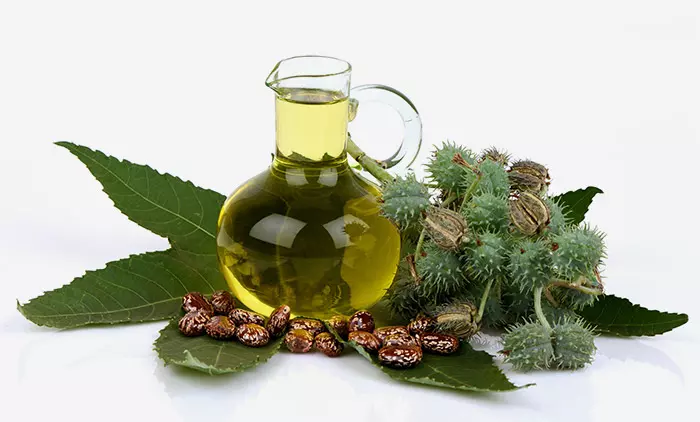
You Will Need
1 teaspoon castor oil
What You Have To Do
- Take the castor oil on an empty stomach in the morning.
- If you find it difficult to swallow the oil, you may mix it with lemon juice or with a glass of warm milk.
When You Need To Do This
Do this every day for a few days.
How This Works
Castor oil works amazingly well in treating constipation. When taken on an empty stomach, this oil will soften your stool and relieve constipation within a couple of hours (11).
Caution
Do not take castor oil for more than seven days without a doctor’s consent.
A health blogger shared their experience of using castor oil for chronic constipation. They said, “Tired of the experiment I decided to check out castor oil. I took 2 and half table spoons and 2 hours later, despite the presence of anal fissure I was able to poo easily (i).”
6. Lactulose
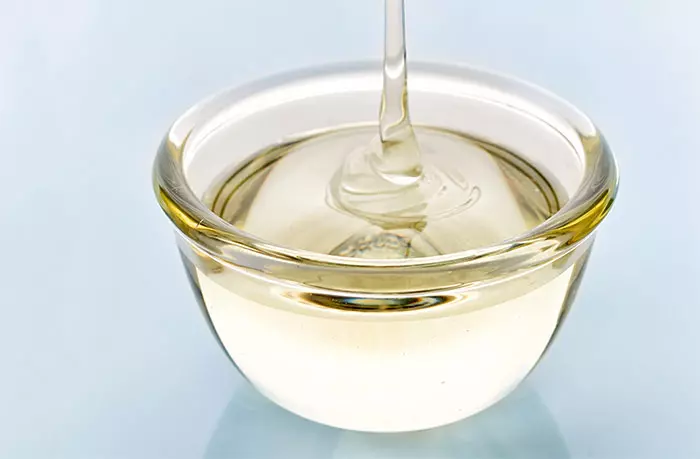
You Will Need
Lactulose syrup
What You Have To Do
- Take 15ml of the syrup with water or juice twice a day.
- Maintain a gap of 10-12 hours between doses.
When You Need To Do This
Do this for three to five days and observe your stool movement. If there is still no relief, consult a doctor.
How This Works
Lactulose is a laxative that is commonly used to get relief from constipation in people of all ages. It softens the stool by pulling water from the colon (12).
Lactulose For Constipation In Babies
Lactulose is safe for use in babies and children. The same twice a day dosage as in adults is recommended. However, the quantity of syrup to be given differs. Please consult your doctor for dosage (13).
Lactulose For Constipation During Pregnancy
As lactulose is not absorbed in the small intestines, it is not a threat to the fetus and can be used by pregnant women to treat constipation (14).
7. Herbal Teas
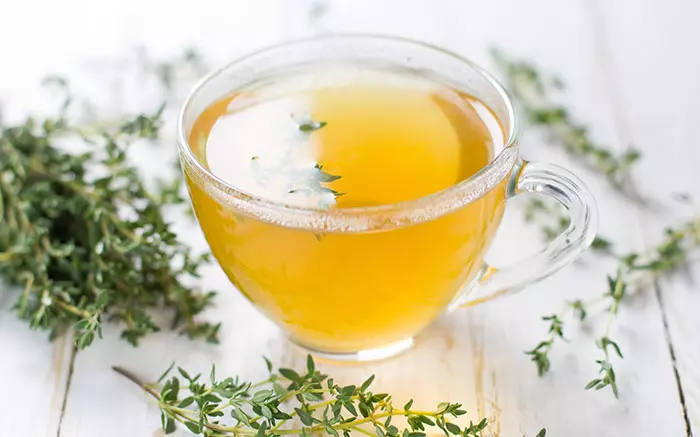
You Will Need
- Herbal tea leaves or granules
- Water
What You Have To Do
- Boil water and remove from stove. Add herbal tea leaves or granules to it.
- Let it sit for a couple of minutes (30 minutes maximum). Strain and drink the tea.
When You Need To Do This
Drink three to four cups a day.
How This Works
Herbal teas are natural laxatives and help in the easier passing of stools (15). They cause a certain amount of water retention in the colon, leading to smoother stools that can pass easily. Honey or molasses can be added to further help the tea’s laxative properties. Some of the best kinds of herbal teas for quick relief from constipation are as follows:
- Green tea
- Peppermint tea
- Black tea
Children who suffer from constipation can also be given herbal teas.
8. Olive Oil

You Will Need
2 tablespoons olive oil
What You Have To Do
Take olive oil on an empty stomach in the morning.
When You Need To Do This
Do this for a few days till the problem is solved.
How This Works
Natural oils are also a good way to cure constipation. Olive oil acts as a laxative by smoothening stool movement and excretion. It helps to give immediate constipation relief for adults and children too. It has a natural tendency to cover the intestinal walls, and this makes it much easier for the stool to pass (16), (17). You can also use olive oil in food preparations, apart from consuming it on an empty stomach.
9. Coconut Oil
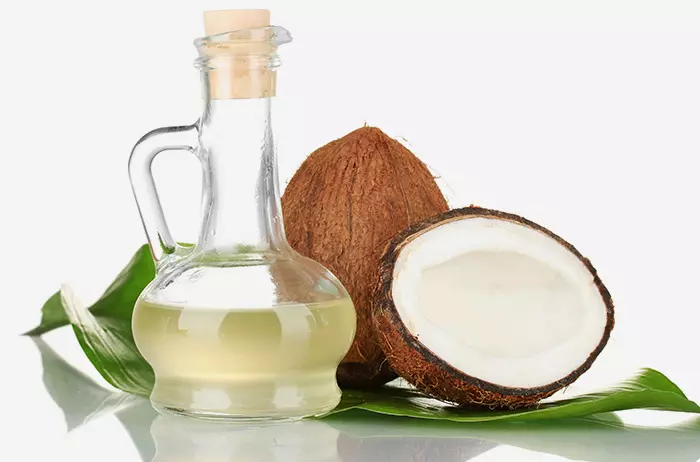
You Will Need
Coconut oil
What You Have To Do
- Take half a tablespoon of coconut oil in the morning and half a tablespoon in the night. You can simply mix it in your food.
- You can add in half tablespoon increments each day for chronic constipation.
When You Need To Do This
Do this for two to three days for fast relief from constipation.
How This Works
Coconut oil
contains high amounts of medium-chain fatty acids, which help in getting relief from infrequent bowel movements. This oil, if consumed regularly, works well for people who suffer from chronic constipation as well (18).
Caution
Do not exceed more than four tablespoons per day, as high doses of coconut oil can cause diarrhea-like symptoms.
10. Baking Soda
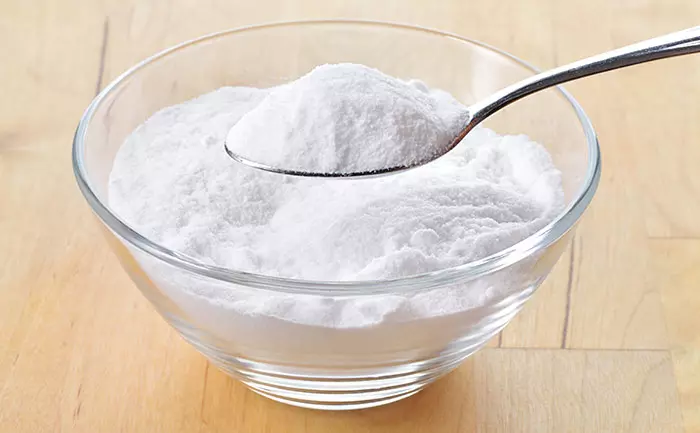
You Will Need
- 1 teaspoon baking soda
- A glass of tepid water
What You Have To Do
- Add the baking soda to the water and drink this mixture quickly.
- You will notice faster bowel movements in a short period of time.
When You Need To Do This
Doing this on an empty stomach works best.
How This Works
Baking soda (sodium bicarbonate) is an excellent, affordable, and inconspicuous way to be constipation free. It releases gas, reduces the acidity in the alimentary canali The pathway the food travels through while it gets swallowed, digested, absorbed, and leaves the body as feces. , and removes bloating and that feeling of fullness (19). It is equally effective for children, adults, and seniors as it has no side effects.
11. Triphala
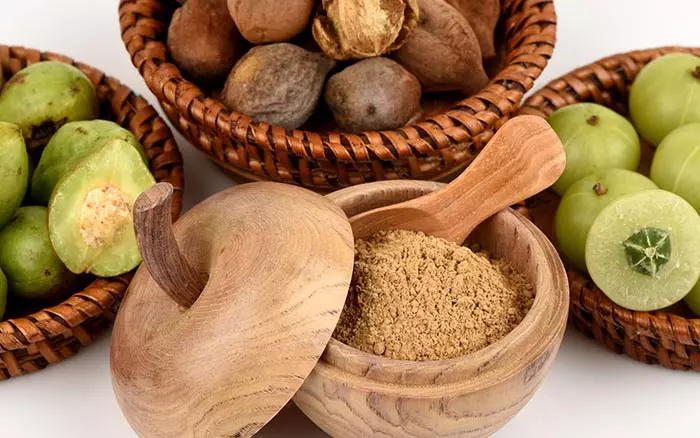
You Will Need
- 2 teaspoons triphala powder
- A glass of warm water
What You Have To Do
- Mix the powder well with water and drink this before going to bed.
- Do not eat anything after drinking this. However, you can drink water, but after a 30-minute gap.
When You Need To Do This
Do this for a few days before going to bed.
How This Works
This brown-colored powder is made from three plants, namely amalaki, haritaki, and bibhitak. It is an ancient Ayurveda remedy to improve digestion by stimulating the release of digestive enzymes and improving muscle contractions. It acts as a natural laxative and helps in quick constipation relief (20).
12. Vitamins
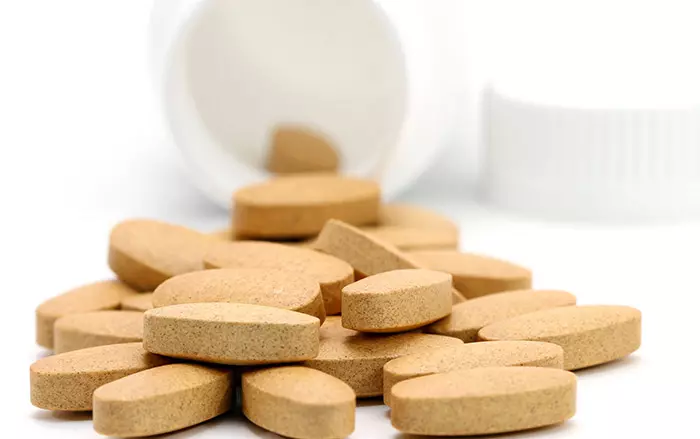
You Will Need
- Vitamin C tablet
- Vitamin B complex capsule
What You Have To Do
- Dissolve a tablet of vitamin C in a glass of water, and drink this.
- Take a vitamin B complex capsule along with it.
When You Need To Do This
Do this daily for a few days.
How This Works
Vitamin C has been shown to reduce the effects of constipation and acts as a detoxifying gastric stimulant. It not only encourages the alimentary canal to do its job to the end, but also removes unhealthy toxins and built up undigested material from the intestinesVitamin B complex components, mainly B1, B5, B9, and B12 act as natural laxatives and give relief from hard stools and constipation. The deficiency of vitamin B12 is often linked to constipation (21). Eat a diet that is rich in these vitamins for a healthy digestive system.
13. Wheat Bran
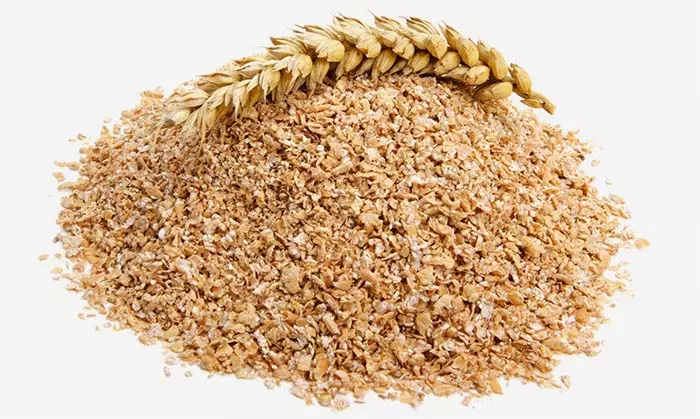
You Will Need
20-25 gms of wheat bran.
What You Have To Do
Add the wheat bran to pancakes, bread, soups, and stews in order to consume about 25 gms in a day.
When You Need To Do This
Include this in your daily diet and get relief from constipation.
How This Works
It is an insoluble fiber that adds bulk to your stool and helps it pass smoothly through the colon. It speeds up the colon and increases bowel frequency (22).
Tips To Follow To Control Constipation
After reading about how to get rid of constipation fast at home naturally, you might also want to consider other methods. Like, people are also known to use psyllium husk, ginger teas, aloe vera juice, and flaxseeds to control constipation although they are not backed by research. However, people also go for other solutions, such as colon cleanses, reflexologyi A treatment that involves massaging specific pressure points on the hands, feet, or ears to encourage relaxation and good health. , acupuncturei A traditional Chinese medical technique that entails the insertion of tiny needles into specific body locations to balance energies and encourage healing. , stomach massages, or chiropractic help. These solutions might benefit you, but for a sustainable solution, a lifestyle change is required almost always. Read the following tips to learn how you can treat constipation via lifestyle and dietary changes.
- Personal Schedule: Your sleep pattern and the time interval between meals must be straightened out. The circadian clock also rules your bowel movements.
- Traveling: In case you travel a lot, you must maintain a regular eating schedule as much as possible. Don’t immediately delve into the local cuisine if you are already constipated.
- Regularity: Holding back the urge to pass stools may lead to severe and chronic constipation.
- Food Items To Include: Eat whole grains, oats, brown rice, vegetables, and fruits rich in fiber like broccoli, sweet potato, beans, apple, peaches, pears, and berries. Dried fruits and nuts are also rich in fiber and help in fast constipation relief. Some other healthy food items are rhubarb, artichokes, and legumes.
- Food Items To Avoid: Dairy products like milk and cheese should be avoided by people who find them difficult to digest. Also, avoid red meat, packaged frozen dinners, fried food and bananas when trying to get relief from constipation.
- Exercise Regularly: A sedentary lifestyle with little or no exercise tends to make one constipated over time. Take up any physical activity like running, walking, lawn tennis, going to the gym, aerobics, cardio drills, or cycling. Intense physical activity will also make you take more fluids, which also goes a long way in treating constipation.
- Yoga: If heading out and jogging is not your thing, then there are multiple yoga poses like pavanmuktasana, uthhanpadasana, sukhasana, and vajrasana that can be practiced to get relief from gastrointestinal problems like constipation.
What Causes Constipation
A number of health and lifestyle factors can cause constipation in both children and adults. Even babies are not spared by this ‘motion menace’. The causes may be so simple that you’ll wonder why you didn’t realize them before, or so indirect that you’ll keep wondering where the connection lies.
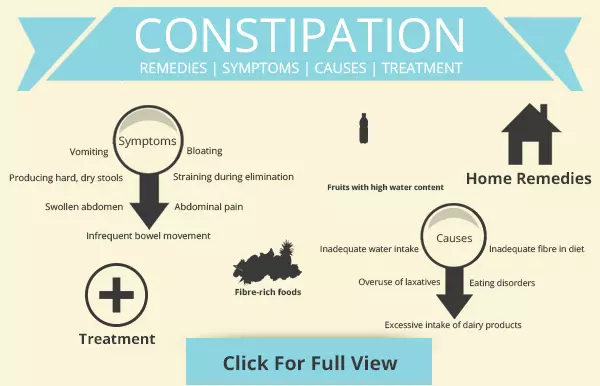
Click here to view an enlarged version of this infographic.
Here are some common causes that can lead to constipation.
1. Low Intake Of Roughage Or Fiber
Fiber or roughage is a part of the food that is not digested. It stays in the gut and is passed in the stools. Fiber adds bulk to the stools and enables the bowel system to work well. A diet with plenty of fiber helps to prevent and treat constipation.
2. Low Intake Of Fluids
Fiber needs fluid to work. So, you need to drink a lot of water if you have a high fiber diet. Drink at least two liters of water daily. This will prevent a rare complication called blockage of the gut, which happens if you don’t drink adequate fluids with a lot of fiber. Ensure proper hydration and consume 8-9 glasses of water a day.
3. Medication
Various medications that are taken to treat deficiencies or other health issues might have constipation as one of their side effects. Antihistaminesi A class of medications used to treat the symptoms of allergic reactions like hay fever, insect bites, hives, and conjunctivitis. , antidepressants, pain medication (codeine), antacids, and iron supplements have been shown to cause constipation.
4. Pregnancy And Childbirth
During pregnancy, the muscle contractions that move food through the intestines slow down due to the secretion of progesteronei A hormone that supports pregnancy, controls the menstrual cycle, and maintains the balance of other reproductive hormones. (22). Also, the extra iron that pregnant women are taking can add to constipation. It happens mostly during the first trimester, but if it continues, medical assistance is required.
5. Hypothyroidism
The signs and symptoms of hypothyroidism vary depending on the severity of the hormone deficiency. It develops slowly over a number of years. As the metabolism slows down, you may develop more obvious signs and symptoms. Hyperthyroidism symptoms may include fatigue, unexplained weight gain, and constipation (24).
6. IBS (Irritable Bowel Syndrome)
Irritable Bowel Syndrome or IBS is a common disorder that affects the large intestine or colon. IBS mainly causes cramps, bloating, gas, diarrhea, and constipation. IBS can be controlled by managing diet, lifestyle, and stress (25). Medication and counseling are also helpful.
7. Lack Of Physical Activity
If there is a lack of physical activity, the metabolism process slows down. This can cause constipation and other health problems. Exercise keeps a person fit and positive.
8. Chocolate
We all love chocolates, but too much of anything is not good. People with irritable bowel syndrome (IBS) should avoid chocolate totally. The link between chocolate and constipation is still under research, but it is said that the fat concentration in chocolates slows down the digestion process.
9. Health Supplements
Over the counter nutritional supplements can cause constipation. Iron and calcium supplements are the two main culprits. You need to refrain from taking supplements and correct this deficiency problem by having proper food. Eating balanced and healthy meals helps you get all the vitamins and minerals needed for proper functioning of the body.
10. Excessive Use Of Laxatives
Using stimulant laxativesi Substances that soften stool or encourage bowel movements to alleviate symptoms of constipation. or stool softeners every day can cause the colon to lose its ability to move things through. Also, overusing enemas can have the same effect. Avoid using them on a regular basis as this will cause complete dependency, and it will become very hard to treat constipation.
11. Dairy Products
If you happen to be lactose intolerant, and you are still consuming dairy products, then you are bound to have constipation. Don’t introduce cow’s milk to infants aged below one year, nor should you give them any dairy products without a doctor’s consent. Having milk and dairy products is undoubtedly good for health, but if you are allergic to them, you must avoid them totally. Probiotics might be good for your bowel movements if you have no intolerance or allergies to dairy products.
12. Depression
Depression and mental stress are directly linked to constipation. One should practice relaxation techniques daily to avoid depression and constipation. Stress of any kind can affect the body’s normal functioning and cause irregular bowel movements.
13. Frequent Urination
Holding back the urge to visit the washroom can have a negative effect. Don’t hesitate to use the office bathroom or public restrooms, since your health is more important. Also, make it a habit of using the restroom at the same time everyday as it eases the problem of constipation.
Symptoms & Signs Of Constipation
Apart from not being able to pass stools, here are some other symptoms of constipation:
- Gas
- Bloating
- Feeling of fullness
- Pain in the lower abdomen
- Cramps in the lower abdomen
- Headache
 Quick Tip
Quick TipSide Effects Of Constipation
Apart from the difficulty to pass stools and infrequent bowel movements, constipation can have some painful side effects like:
- Extreme discomfort
- Feeling bloated
- Abdominal pain
- Swollen abdomen
- Vomiting
- Headache
- Back pain (complete back or just on one side, especially during pregnancy)
- Chest pain
- Pain in the legs
To be vexed with constipation in the long run is indeed uncomfortable, and it may produce other long-term health issues like anal fissures and hemorrhoids, which in themselves are painful and difficult to treat. Constipation is also linked to the build-up of toxins in the body. It is necessary to nip the problem in the bud before it starts affecting all other areas of your life. Therefore, consulting your doctor before it is too late is necessary.
When To Seek Medical Help
When constipation persists for more than a week and is accompanied by symptoms like extreme pain, blood in the stool, or fluctuating body weight, it is best to seek medical attention. Abdominal bloating, vomiting, or any abrupt change in bowel habits are additional warning indicators. Consult a healthcare professional if constipation starts to become a regular issue, as prompt treatment can help avoid complications and enhance your digestive health in general.
All the fast home remedies listed for constipation are time-tested and are mostly safe from side effects. Apart from them, maintain a healthy lifestyle. Eating right, sleeping just enough, and visiting the loo at the same time every day are healthy practices. As is with adults, children and infants may also be affected by constipation. Yet, it is necessary to consult a doctor before trying any of these constipation home remedies on children and infants as their digestive system has not matured fully and might respond very differently to these remedies.
Infographic: Top 6 Home Remedies For Constipation
Lack of bowel movements or constipation can cause bloating, gas, and pain. If you are facing a similar issue, all you need is some tried-and-true home treatments that can aid in restoring the balance of your digestive system. Check out the infographic below to learn more about the best ingredients that can help relieve constipation naturally.

Illustration: StyleCraze Design Team
Several health and lifestyle factors can cause constipation in children and adults. Apart from not being able to pass stools, gas, bloating, pain in the lower abdomen, feeling of fullness are some of the symptoms of constipation. Eating right, sleeping just enough, and visiting the loo at the same time every day are some of the lifestyle changes that may help relieve the symptoms of constipation. The home remedies mentioned in this article can help you relieve the symptoms of constipation. It’s also important to know and avoid foods that cause constipation. Learning about the right foods to include in your diet and the ones to exclude can help you maintain a healthy digestive system and prevent constipation. However, consult a doctor if your symptoms do not recede even after using these home remedies.
Frequently Asked Questions
What are some preventive measures for constipation?
Eating a high-fiber diet, drinking lots of water, and staying active are a few preventive measures against constipation. Additionally, stick to a regular bathroom routine, and do not ignore the urge to go when you feel it.
How do you rub your stomach to poop?
Make sure that your belly is relaxed and soft in a seated or lying position and rub your stomach with your knuckles, fingertips or the heel of your hand in the shape of a horseshoe (the same shape as the colon), starting at the lower corner in the right side of your abdomen.
What is the best position to poop when constipated?
Squatting with your knees in a position higher than your hips, legs apart and elbows resting on your knees as you lean forward is the best position for easing bowel movements when you are constipated.
What happens if you push too hard while pooping?
Pushing too hard while pooping can cause damage to the intestines, anal tissues and even trigger brain aneurysms in some cases.
Is there a pressure point to relieve constipation?
Yes. San Jiao 6, Stomach 25, Spleen 15, and Kidney 6 are some of the acupressure points that can help relieve constipation.
How should you sleep when you are constipated?
You should sleep on your left side to facilitate bowel movements if you are constipated.
Will a hot bath relieve constipation?
A warm bath may help relax the anal sphincter muscles and facilitate bowel movements, thus relieveing constipation.
Learn how to get rid of constipation quickly with the home remedies listed in the video below! Discover simple and effective ways to ease your discomfort and get back to feeling your best.
Personal Experience: Source
StyleCraze's articles are interwoven with authentic personal narratives that provide depth and resonance to our content. Below are the sources of the personal accounts referenced in this article.
i. Castor Oil Treats Chronic Constipationhttps://medium.com/@Nghealthblog/castor-oil-treats-chronic-constipation-5d1358eb3841
References
Articles on StyleCraze are backed by verified information from peer-reviewed and academic research papers, reputed organizations, research institutions, and medical associations to ensure accuracy and relevance. Read our editorial policy to learn more.
- Diagnosis of constipation
https://www.niddk.nih.gov/health-information/digestive-diseases/constipation/diagnosis - Diagnosis and treatment of chronic constipation – a European perspective
https://www.ncbi.nlm.nih.gov/pmc/articles/PMC3170709/ - The Laxative Principle in Prunes
https://journals.sagepub.com/doi/abs/10.3181/00379727-31-7091C - Randomised clinical trial: dried plums (prunes) vs. psyllium for constipation
https://pubmed.ncbi.nlm.nih.gov/21323688/ - Medical treatment of constipation
https://www.ncbi.nlm.nih.gov/pmc/articles/PMC2780140/ - Magnesium hydroxide
https://medlineplus.gov/druginfo/meds/a601073.html - Childhood constipation: Evaluation and management
https://www.ncbi.nlm.nih.gov/pmc/articles/PMC2780136/ - Medical management of constipation
https://www.ncbi.nlm.nih.gov/pmc/articles/PMC3348737/ - Glycemic response, satiety, gastric secretions and emptying after bread consumption with water, tea or lemon juice: a randomized crossover intervention using MRI
https://pubmed.ncbi.nlm.nih.gov/35013789/ - Effect of dietary fiber on constipation: A meta analysis
https://www.ncbi.nlm.nih.gov/pmc/articles/PMC3544045/ - Castor oil
https://www.ncbi.nlm.nih.gov/books/NBK551626/ - Lactulose
https://www.ncbi.nlm.nih.gov/books/NBK536930/ - Lactulose for the treatment of Chinese children with chronic constipation
https://www.ncbi.nlm.nih.gov/pmc/articles/PMC6314691/ - Treatment of constipation in pregnant women. A multicenter study in a gynecological practice
https://pubmed.ncbi.nlm.nih.gov/7481624/ - Senna: As immunity boosting herb against Covid-19 and several other diseases
https://www.ncbi.nlm.nih.gov/pmc/articles/PMC9830937/ - Evaluation of the anti-constipation effects of abdominal application of olive oil ointment in children 1-4 years old: a pilot placebo-controlled, double-blind, randomized clinical trial
https://pubmed.ncbi.nlm.nih.gov/34981493/ - The short-term effects of olive oil and flaxseed oil for the treatment of constipation in hemodialysis patients
https://pubmed.ncbi.nlm.nih.gov/25238699/ - Ameliorative effects of virgin coconut oil in loperamide induced constipation in rats
https://www.researchgate.net/publication/344023975_Ameliorative_Effects_of_Virgin_Coconut_Oil_in_Loperamide_Induced_Constipation_in_rats - The therapeutic importance of acid-base balance
https://pubmed.ncbi.nlm.nih.gov/33039418/ - An open-label, prospective clinical study to evaluate the efficacy and safety of TLPL/AY/01/2008 in the management of functional constipation
https://www.ncbi.nlm.nih.gov/pmc/articles/PMC3193686/ - Vitamin B12 supplementation: preventing onset and improving prognosis of depression
https://www.ncbi.nlm.nih.gov/pmc/articles/PMC7688056/ - Wheat bran: its composition and benefits to health, a European perspective
https://www.ncbi.nlm.nih.gov/pmc/articles/PMC3507301/ - Treating constipation during pregnancy
https://www.ncbi.nlm.nih.gov/pmc/articles/PMC3418980/ - Thyroid disease
https://www.ncbi.nlm.nih.gov/books/NBK241/ - Irritable Bowel Syndrome: A Review Article
https://www.ncbi.nlm.nih.gov/pmc/articles/PMC4154827/
Read full bio of Dr. Saba
Read full bio of Kushneet Kukreja
Read full bio of Arshiya Syeda
Read full bio of Dipti Sharma





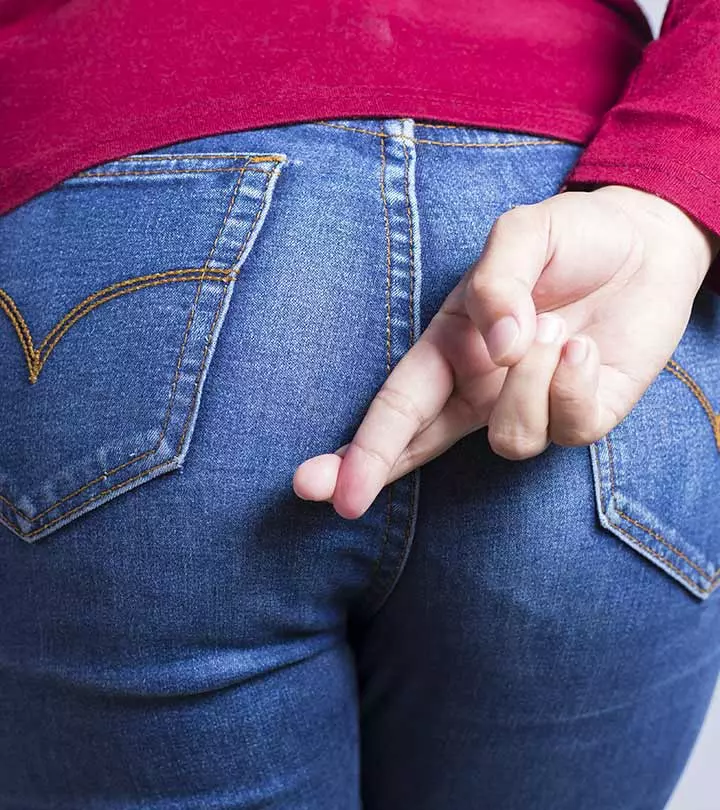


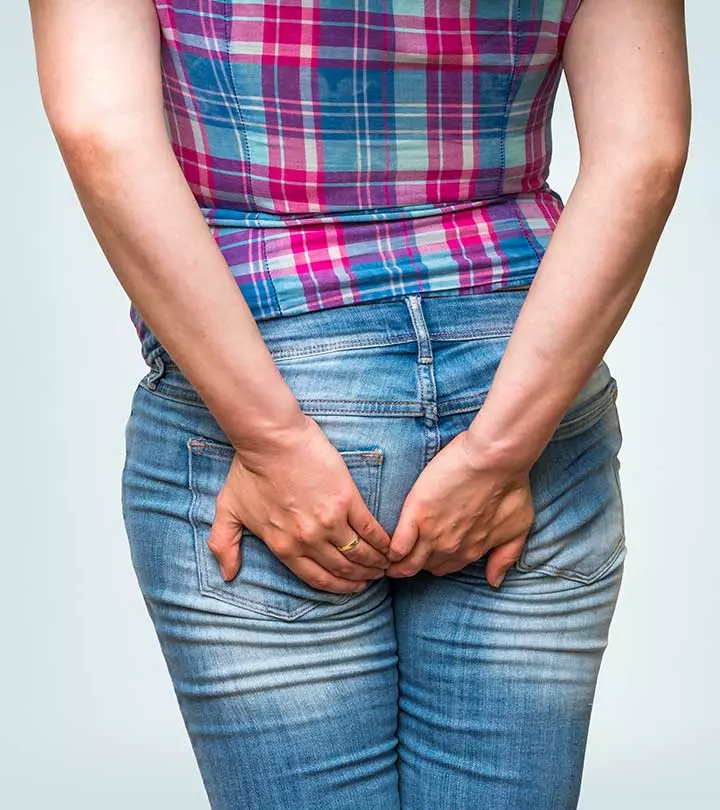



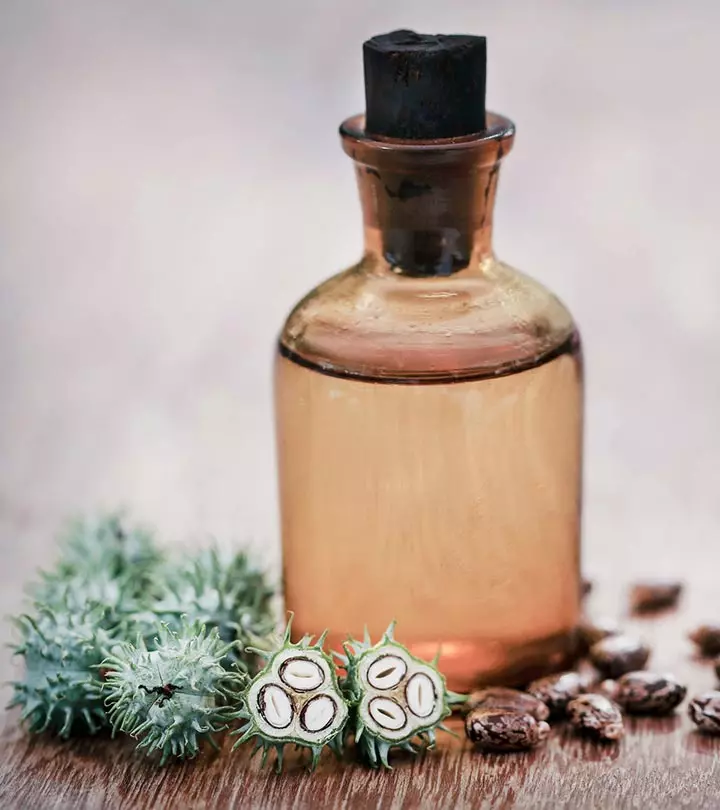








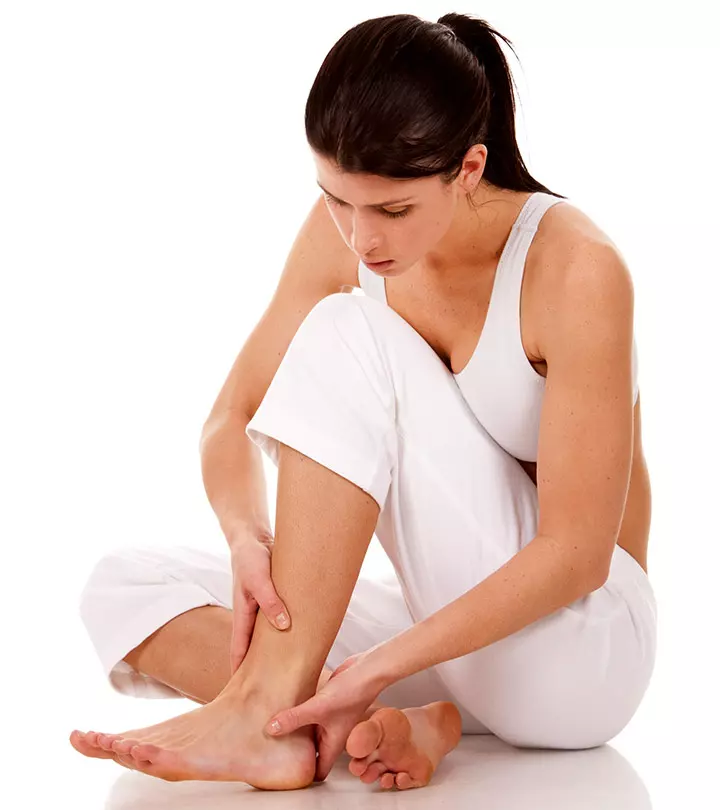



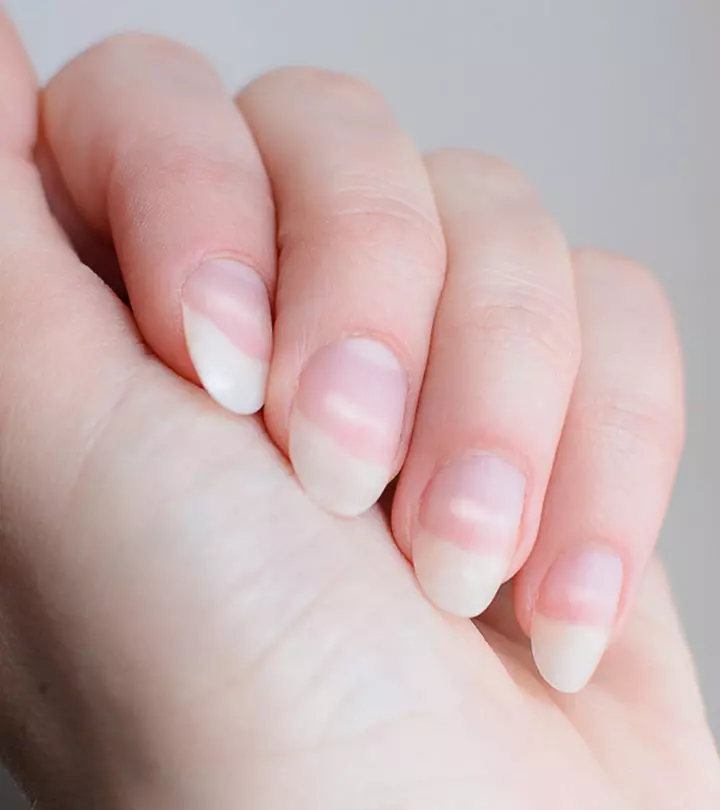
Community Experiences
Join the conversation and become a part of our empowering community! Share your stories, experiences, and insights to connect with other beauty, lifestyle, and health enthusiasts.